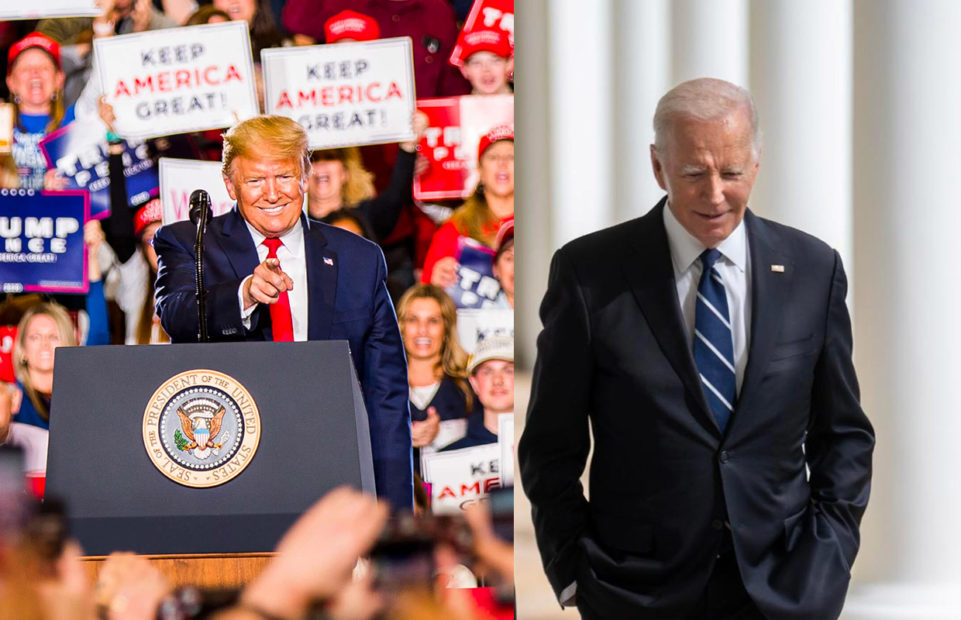The electoral process for a U.S. President is long, with many candidates declaring their campaigns six or even 12 months before primary season opens in January. But this year, the primaries could lack suspense, with one incumbent candidate, President Joe Biden for the Democrats, and one Republican, Donald Trump dominating that party’s primary process despite not having participated in televised debates with his opponents.
January 15 saw a major milestone on the road to the 5 November election when, following tradition, primary season kicked off with not a primary but a caucus in Iowa. A Mid-western state with an electorate which is a far from typical of the country as a whole. This year there was only a Republican caucus in Iowa, the Democrats preferring to concentrate their efforts on states that are more diverse. Iowan Democrats will vote by post in March. You can see the primary calendar on the NBC site.
The primaries and caucuses aim to winnow a field of candidates down to an eventual nominee for their party: in each state, votes correspond to a number of delegates that attend the party’s national convention to name the presidential candidate in the summer. There are some differences between states but generally voters can choose to register as a Republican or a Democrat when the sign up to the electoral roll. And that gives them the right to vote in that party’s primary or caucus.
Since the Democratic incumbent President Joe Biden is a candidate for re-election, the focus is mainly on the Republican elections. There are two Democratic opponents to Biden, but they aren’t expected to win many votes.
The Republican Battle
In the Republican camp, the front runner is Donald Trump. From nine candidates before primary season, only three received significant numbers of votes in Iowa. Donald Trump won more than 50% of the votes, with current Florida governor Ron DeSantis and former South Carolina governor Nikki Haley scoring about 20% each. The only other candidate to gain any delegates, Vivek Ramaswamy, dropped out after the results and endorsed Donald Trump. Ron DeSantis did the same before the New Hampshire primary, leaving Nikki Haley the last woman standing.

Haley had long hoped for good things on 23 January in New Hampshire, the first actual primary of primary season. It’s a state with a liberal reputation that would traditionally be expected to favour Nikki Haley over her more right-wing opponents. She seems to have done respectably, polling about 44% to Trump’s 54%. Her next challenge is the South Carolina primary on 24 February. She has the home advantage, having been Governor of the state, but Donald Trump is leading her in opinion polls. If Ms Haley can’t win in her home state, her bid could be over before Super Tuesday. This year it’s on 5 March and will see 16 states vote.
Read more about Nikki Haley here.

So is this campaign going to be a rerun of 2020, with Donald Trump and Joe Biden facing off?
The Age Question
Republicans (and some Democrats) regularly say that at 81 on election day, Joe Biden is too old for office. Although he is less than four years older than Donald Trump, he is regularly caricatured as physically and mentally failing.
The Judicial Questions
Beyond his refusal to accept the result of the 2020 election which he lost to Biden, it could be assumed that the many state and federal charges faced by Trump would be a disqualification for running for office. And indeed Colorado’s Supreme Court has ruled that he can’t be on the ballot because of his involvement in the 6 January 2021 assault on the Capitol by his supporters. But Trump’s supporters seem to accept his defence that charges against him are politically motivated, whether they concern his business affairs, keeping confidential documents after his term or hush money paid to a former porn star.
The Democrats meanwhile are limited in the mileage they can make out of Trump’s legal woes because of similar allegations about confidential documents made about Biden and charges brought against his son Hunter.
Another important point is that 5 November is not only a Presidential election. All of the House of Representatives, a third of Senate seats and 11 out of 50 governors will also be elected. And it will make a major difference to whoever wins the White House if they do — or don’t — have a majority in one or both houses of Congress.
For more on caucuses and primaries, check out our explainer. For more on Nikki Haley, check out our portrait.
Copyright(s) :
Popel Arsenyi/Shutterstock
Haley for President
Andrew Cline/Shutterstock
Trump for President
Democrats National Committee
> U.S. Presidential Marathon
> Caucus vs Primary
> Explaining the Electoral College
> What’s Going On in the U.S. Congress?
Tag(s) : "2024" "Biden" "caucuses" "Democrat" "elections" "Iowa" "president" "primaries" "Republican" "traditions" "Trump" "U.S. culture" "U.S. history" "U.S. politics" "White House"





